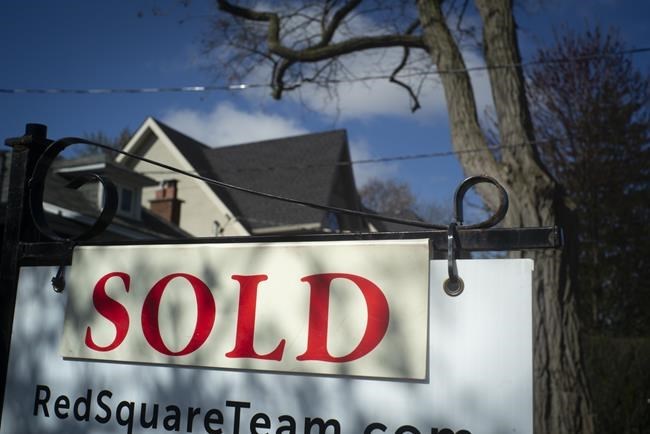Toronto's housing market saw its best September on record as pent-up demand and rock bottom borrowing costs supercharged sales despite the ongoing COVID-19 pandemic.
The Toronto Regional Real Estate Board said 11,083 existing homes were sold in September, an increase of 42.3 per cent over September 2019, at an average price of $960,772.
Despite the boom, real estate broker Davelle Morrison says it is difficult to get a read on the market from the ground, as different asset classes are diverging.
The 14 per cent year-over-year price jump was led by detached homes and townhouses, while the condo market was slower, the board said on Tuesday. The benchmark price for detached homes rose 12.9 per cent, compared to a 6.6 per cent rise for condos.
Areas outside the city of Toronto led price growth with prices rising 20 per cent in South Simcoe County and more than 17 per cent in Durham and Orangeville.
Morrison, a broker at Bosley Real Estate Ltd. brokerage, says on the one hand, homebuyers looking for a detached house with a yard are motivated — there are no “tire kickers” — and she expects that demand to continue into December.
New listings were up 30.8 per cent in September compared to Sept. 2019, meaning that sales are still growing faster than supply.
“In some areas we're seeing the supply increase so much, it's making it easier for buyers to shop around. You see some buyers saying, ‘Okay, I want to wait it out, I'm gonna sit on the sidelines. But then other buyers say, ‘You know what, if there's a lockdown I'm going to go out and buy something then, for sure,’” says Morrison.
“But overall, I would say people are still committed to making their changes. And I would say they're more committed than any time I've ever seen before.”
The condo market is a different story, Morrison says. Particularly downtown, condos are sitting on the market for longer, showings are sparser, and frustrated sellers are relenting on pricing.
“Without the immigration, the Airbnbs, the international students, you're seeing that a lot of the demand for buying condos or renting condos going down significantly,” says Morrison.
“A couple of my clients had tenants renting out their condos. But once COVID hit, they were concerned about riding in elevators, so they kind of hightailed it out to their parents’ place ... they decided to just give up their rental. So because they gave up the rental, my clients decided to put their investment properties on the market and sell their condos.”
Morrison says that easing competition in the condo market could be an opportunity for first-time homebuyers.
“People ... know that interest rates are going to be low, so it's a good time to buy,” says Morrison.
Board president Lisa Patel said “extremely low borrowing costs” contributed to the record-breaking sales figures, as did built-up demand left over from the stunted spring season.
The real estate market has been playing catch up after sales plunged in the spring, when COVID-19 lockdowns prevented home showings. As of the end of September, the board says home sales for the year were one per cent higher than in the first nine months of 2019.
“Our business generally used to have a seasonality. The spring market — February through May — would be hot. It would be low in July, August, and then it'll be hot again in the fall. Well, I think that with COVID, all the seasons are out the door. It's just it's a new pattern,” says Morrison.
Despite the rising sticker price on homes, seasonal adjustments would show home average prices falling 3.4 per cent, the board estimated. “Further improvements in the economy, including job growth, would support strong home sales moving forward,” said Patel in a statement.
“However, it will be important to monitor the trajectory of COVID-19 cases, the related government policy response, and the impact on jobs and consumer confidence.”
This report by The Canadian Press was first published Oct. 6, 2020.
Anita Balakrishnan, The Canadian Press




